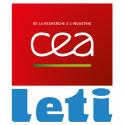6.2 Physical Unclonable Functions
Date: Wednesday 11 March 2015
Time: 11:00 - 12:30
Location / Room: Belle Etoile
Chair:
Ingrid Verbauwhede, KUL, BE
Co-Chair:
Tim Güneysu, Ruhr University Bochum, DE
Physically Unclonable Functions (PUF) have received much attention for fingerprinting and as secret key provider in electronic devices. This session presents novel constructions and attacks on Arbiter, Ring-Oscillator and DRAM PUFs.
| Time | Label | Presentation Title Authors |
|---|---|---|
| 11:00 | 6.2.1 | EFFICIENT ATTACKS ON ROBUST RING OSCILLATOR PUF WITH ENHANCED CHALLENGE-RESPONSE SET Speakers: Phuong Ha Nguyen, Durga Prasad Sahoo, Rajat Subhra Chakraborty and Debdeep Mukhopadhyay, Indian Institute of Technology Kharagpur, IN Abstract Physically Unclonable Function (PUF) circuits are an important class of hardware security primitives that promise a paradigm shift in applied cryptography. Ring Oscillator PUF (ROPUF) is an important PUF variant, but it suffers from hardware overhead limitations, which in turn restricts the size of its challenge space. To overcome this fundamental shortcoming, improved ROPUF variants based on the subset selection concept have been proposed, which significantly ``expand'' the challenge space of a ROPUF at acceptable hardware overhead. In this paper, we develop cryptanalytic attacks on previously proposed low--overhead and robust ROPUF variant. The proposed attacks are practical as they have quadratic time and data complexities in the worst case. We demonstrate the effectiveness of the proposed attack by successfully attacking a public domain dataset acquired from FPGA implementations. Download Paper (PDF; Only available from the DATE venue WiFi) |
| 11:30 | 6.2.2 | A ROBUST AUTHENTICATION METHODOLOGY USING PHYSICALLY UNCLONABLE FUNCTIONS IN DRAM ARRAYS Speakers: Maryam S. Hashemian1, Bhanu Singh1, Francis Wolff1, Chris Papachristou1, Steve Clay2 and Daniel Weyer2 1Case Western Reserve University, US; 2Rockwell Automation, US Abstract The high availability of DRAM in either embedded or stand-alone form make it a target for counterfeit attacks. In this paper, we propose a robust authentication methodology against counterfeiting. The authentication is performed by exploiting the intrinsic process variation in write reliability of DRAM cells. Extensive Monte Carlo simulations performed in HSPICE show that the proposed authentication methodology provides high uniqueness of 50.01% average inter-die Hamming distance and good robustness under temporal fluctuations in supply voltage, temperature, and ageing effect over a 10-year lifetime. Download Paper (PDF; Only available from the DATE venue WiFi) |
| 12:00 | 6.2.3 | A NOVEL MODELING ATTACK RESISTANT PUF DESIGN BASED ON NON-LINEAR VOLTAGE TRANSFER CHARACTERISTICS Speakers: Arunkumar Vijayakumar and Sandip Kundu, Department of Electrical and Computer Engineering, University of Massachusetts, Amherst, US Abstract Physical Unclonable Function (PUF) circuits are used for chip authentication. PUF designs rely on manufacturing process variations to produce unique response to input challenges. It has been shown that many PUF designs are vulnerable to machine learning (ML) attacks, where a model can be built to predict PUF response to any input after only a few observations. In this work, we propose a ML attack resistant PUF design based on a circuit block to implement a non-linear voltage transfer function. The proposed circuit is simple, exhibits high uniqueness and randomness. Further improvements are proposed to enhance PUF reliability. The proposed circuit was simulated in a 45nm technology process and the results indicate a significant improvement in ML attack resistance in comparison to traditional PUFs. Results on uniqueness and reliability are also presented. Download Paper (PDF; Only available from the DATE venue WiFi) |
| 12:30 | IP3-1, 505 | STT MRAM-BASED PUFS Speakers: Elena Ioana Vatajelu1, Giorgio Di Natale2, Marco Indaco1 and Paolo Prinetto1 1Politecnico di Torino, IT; 2LIRMM, FR Abstract Physical Unclonable Functions (PUFs) are emerging cryptographic primitives used to implement low-cost device authentication and secure secret key generation. Weak PUFs (i.e., devices able to generate a single signature or able to deal with a limited number of challenges) are widely discussed in literature. Nowadays, the most promising solution is based on SRAMs. In this paper we propose an innovative PUF design based on STT-MRAM memory. We exploit the high variability affecting the electrical resistance of the MTJ device in anti-parallel magnetization. We will show that the proposed solution is robust, unclonable and unpredictable. Download Paper (PDF; Only available from the DATE venue WiFi) |
| 12:30 | End of session Lunch Break, Keynote lectures from 1250 - 1420 (Room Oisans) in front of the session room Salle Oisans and in the Exhibition area Coffee Break in Exhibition AreaOn all conference days (Tuesday to Thursday), coffee and tea will be served during the coffee breaks at the below-mentioned times in the exhibition area. Lunch BreakOn Tuesday and Wednesday, lunch boxes will be served in front of the session room Salle Oisans and in the exhibition area for fully registered delegates (a voucher will be given upon registration on-site). On Thursday, lunch will be served in Room Les Ecrins (for fully registered conference delegates only). Tuesday, March 10, 2015Coffee Break 10:30 - 11:30 Lunch Break 13:00 - 14:30; Keynote session from 13:20 - 14:20 (Room Oisans) sponsored by Mentor Graphics Coffee Break 16:00 - 17:00 Wednesday, March 11, 2015Coffee Break 10:00 - 11:00 Lunch Break 12:30 - 14:30, Keynote lectures from 12:50 - 14:20 (Room Oisans) Coffee Break 16:00 - 17:00 Thursday, March 12, 2015Coffee Break 10:00 - 11:00 Lunch Break 12:30 - 14:00, Keynote lecture from 13:20 - 13:50 Coffee Break 15:30 - 16:00 |









